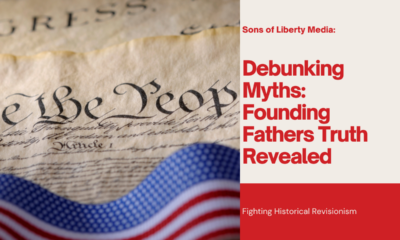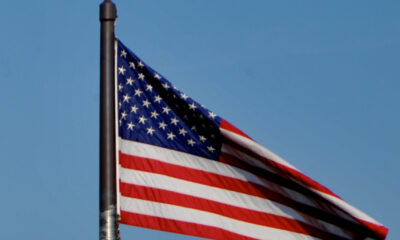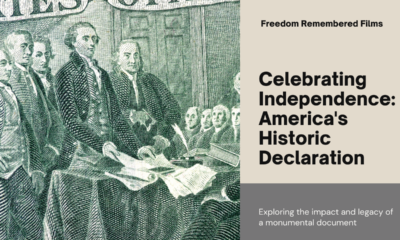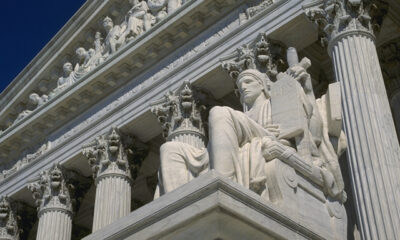Civilization
Blinken Rejects Calls To Add Nigeria to Blacklist
Anthony Blinken refuses to add Nigeria to a blacklist of countries that violate religious freedom, though they are one of the worst offenders.
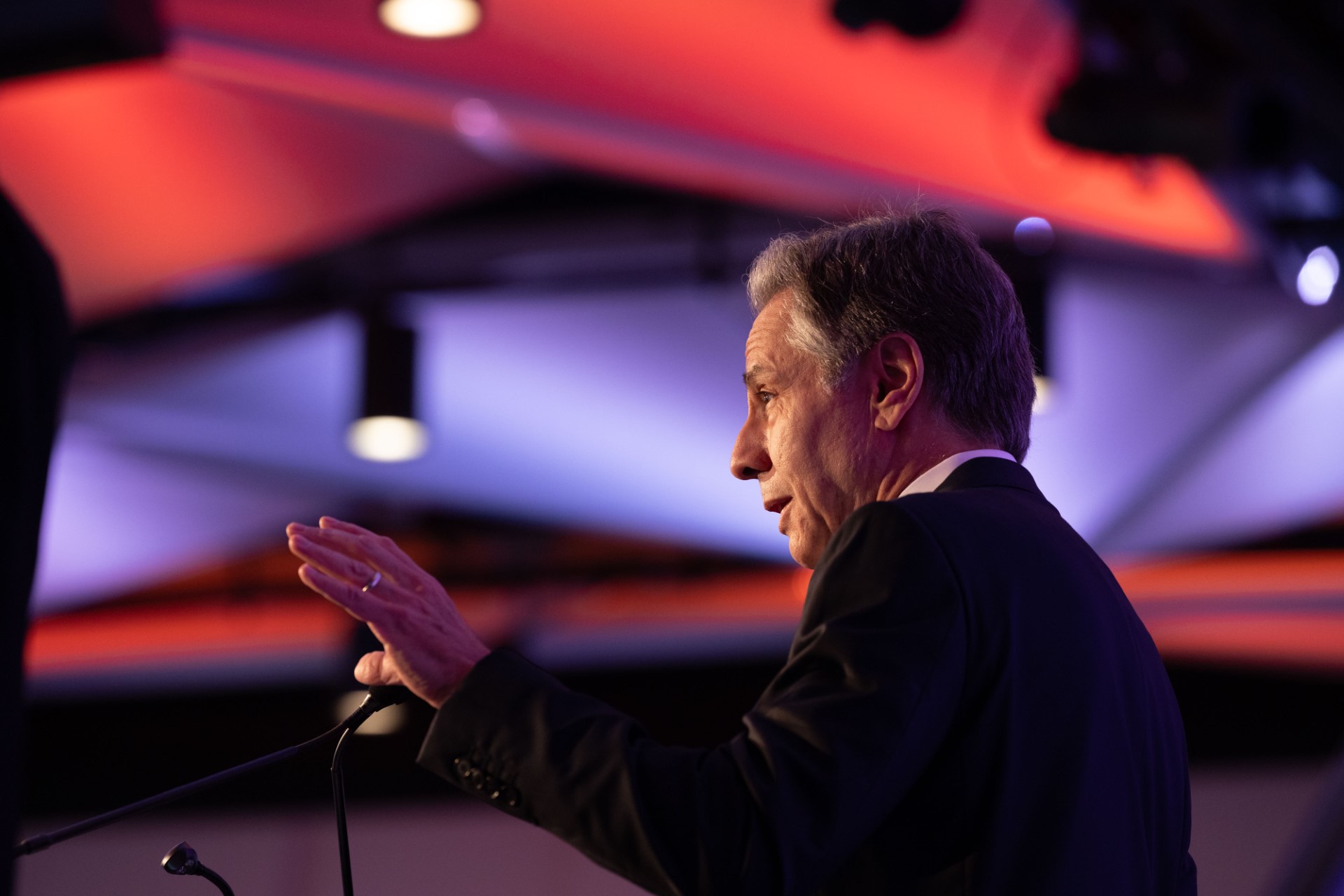
The Biden administration has rejected recommendations from dozens of leading human rights, religious freedom, and Christian groups to reverse course and redesignate Nigeria to its blacklist of worst offenders when it comes to allowing citizens to practice the religion of their choice.
The State Department on Thursday released a much-anticipated annual index of designations, maintaining all 12 countries listed on the previous year’s blacklist on religious freedom and adding only one new country – Azerbaijan – to a special watchlist. The move to add Azerbaijan came just months after the country seized back an ethnic Armenian enclave with a predominantly Christian population.
The 12 countries officially designated as “countries of particular concern,” the official U.S. term for the worst religious liberty offenders, include Burma, China, Cuba, Eritrea, Iran, Nicaragua, North Korea, Pakistan, Russia, Saudi Arabia, Tajikistan, and Turkmenistan.
“Significant violations of religious freedom occur in countries that are not designated,” Secretary of State Antony Blinken noted in a statement. “Governments must end abuses such as attacks on members of religious minority communities and their places of worship, communal violence and lengthy imprisonment for peaceful expression, transnational repression, and calls to violence against religious communities, among other violations that occur in too many places around the world.”
The State Department also designated eight entities of particular concern, non-state actors engaging in severe violations of religious freedom. Those groups include al-Shabab, Boko Haram, Hayat Tahrir al-Sham, the Houthis, ISIS-Sahel, ISIS-West Africa, al-Qaida affiliate Jamaat Nasr al-Islam wal-Muslimin, and the Taliban. USCIRF recommended the designation of seven of these terrorist and militant groups in its 2023 annual report.
Blinken’s decision not to designate Nigeria and India earned an immediate rebuke from the U.S. Commission on Religious Freedom, whose leaders are appointed by Congress and make recommendations to the State Department. The commission, which has repeatedly called for both countries to be placed on the official blacklist, expressed “extreme disappointment” with the decision and called on Congress to hold a hearing on the “failure” of the State Department to follow its recommendations.
“USCIRF rejects the State Department’s decision to omit Nigeria and India as CPCs. We met with the State Department on many occasions to sound the alarm about these countries but not all of our recommendations have been followed,”USCIRF Chair Abraham Cooper and Vice Chair Frederick Davie said in a statement. “We will not be deterred and will continue our role as a congressionally mandated watchdog to ensure the U.S. government prioritizes religious freedom as a key component of U.S. foreign policy.”
USCIRF, however, welcomed the State Department’s inclusion of Azerbaijan on the special watchlist.
The State Department did not explain its decision against placing Nigeria and India on the official blacklist. The Biden administration has previously attributed the slaughter of Christians in Nigeria not to religious persecution but to a conflict over resources exacerbated by climate change.
USCIRF and other leading human rights organizations ardently disagree. Leaders of the commission met with Blinken last month and pressed him to designate Nigeria and India as CPCs. Blinken removed Nigeria from the list in 2021, reversing a decision by former Secretary of State Mike Pompeo in December 2020 to blacklist the West African nation.
Based on the number of Christian deaths at the hands of terrorists and militant groups alone, the decision should be clear-cut, the advocates have argued. More than 5,000 Nigerian Christians have been killed for their faith in 2022, according to a report by Open Doors, a religious freedom watchdog group.
Just days before Christmas, more than 100 Christians, along with their pastor, were killed in Plateau, a religiously diverse state facing increased tensions between Muslim militant herders and Christian farmers.
“This is just the latest example of deadly violence against religious communities in Nigeria that even the State Department has condemned,” Cooper and Davie said. “The majority of commissioners have traveled to Nigeria and noted the threats to freedom of religion or belief and the deadly implications to religious communities.”
Cooper and Davie also called out India’s government for increasing transnational repression targeting religious minorities abroad and those advocating on their behalf.
Despite redesignating Pakistan, Saudi Arabia, Tajikistan, and Turkmenistan, the State Department issued waivers on sanctions aimed at improving religious liberty in those countries. USCIRF recommended the redesignation of all 12 countries without any waivers and also recommended that Afghanistan, Syria, and Vietnam be placed on the blacklist, along with Nigeria and India.
While Blinken followed USCIRF’s guidance to place Azerbaijan on the special watchlist, it rejected the commission’s recommendation to add Algeria, Egypt, Indonesia, Iraq, Kazakhstan, Malaysia, Sri Lanka, Turkey, and Uzbekistan to the same list.
“USCIRF formally requests a detailed justification by the State Department as to why our policy recommendations were not fully implemented, including the waivers,” Cooper and Davie added.
In December, more than two dozen leading religious freedom and Christian advocacy groups urged lawmakers to do more to press the administration into action to help stop the slaughter of innocent Christians and Muslims in Nigeria. The signatories included David Curry, president and CEO of Global Christian Relief and a current USCIRF commissioner; former Rep. Frank Wolf, a Virginia Republican and current USCIRF commissioner; former Kansas Gov. Sam Brownback, who formerly served as the ambassador-at-large for International Religious Freedom in the Trump administration; Katrina Lantos Swett, president of the Foundation for Human Rights & Justice, who co-chairs the annual International Religious Freedom Summit with Brownback; Nina Shea, a senior fellow at, and director of, the Center for Religious Freedom at the Hudson Institute; and many other prominent voices in the faith-based liberty community.
Additionally, Wilfred Chikpa Anagbe, the Catholic bishop who heads the Makurdi Diocese in Nigeria’s Benue state in the country’s north-central region, told RealClearPolitics that he is deeply heartened by the efforts of U.S. religious freedom advocates to press Washington into action on behalf of Nigerian Christians. Benue is roughly 90% Christian and under relentless attack by Fulani Muslim militants.
Earlier this year, New Jersey GOP Rep. Chris Smith introduced legislation calling on the Biden administration to designate Nigeria as a CPC and appoint a special envoy to the country and the Lake Chad region to monitor and combat atrocities there. The measure is co-sponsored by Rep. Henry Cuellar, a Texas Democrat.
This article was originally published by RealClearPolitics and made available via RealClearWire.
Susan Crabtree is a political correspondent for RealClearPolitics. She previously served as a senior writer for theWashingtonFree Beacon, and spent five years asa White House Correspondent for theWashington Examiner.
-

 Executive4 days ago
Executive4 days agoSecret Service chief gets no solace
-

 Executive3 days ago
Executive3 days agoWaste of the Day: Louisville Taxpayers Pay Nearly $600,000 For Empty Building’s Maintenance, Security
-

 Guest Columns5 days ago
Guest Columns5 days agoFear Itself: Democrats’ Favorite Strategy Caused Their Current Chaos
-

 Executive3 days ago
Executive3 days agoWhere is Joe Biden – or Jill?
-

 Executive2 days ago
Executive2 days agoWaste of the Day: Throwback Thursday: Cities Used Crime Prevention Funds on Soccer Games, Paper Shredding
-

 Executive2 days ago
Executive2 days agoFacile and politically motivated suggestions
-

 Civilization5 days ago
Civilization5 days agoBuild Iron Dome in the United States To Prepare for Israel’s Worst Day
-
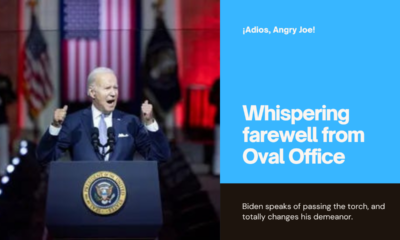
 Executive2 days ago
Executive2 days agoBiden makes farewell whisper



